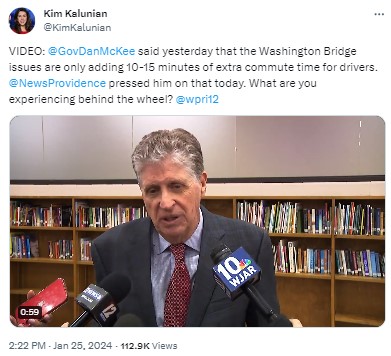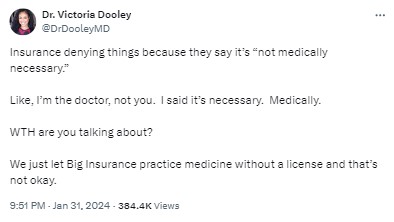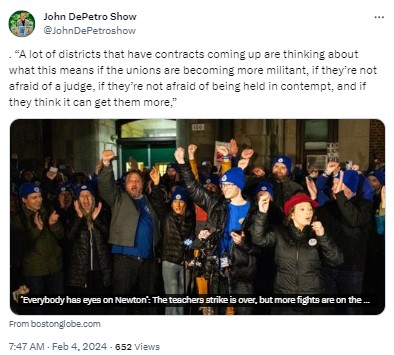I’m a little slow with this, but I still want to chime in on how telling this is:
 It’s never a good sign when politicians find themselves explaining to constituents why they (the People) are exaggerating the difficulties they (the politicians) are causing them with unarguably incompetence, but it’s so, so emblematic of RI government.
It’s never a good sign when politicians find themselves explaining to constituents why they (the People) are exaggerating the difficulties they (the politicians) are causing them with unarguably incompetence, but it’s so, so emblematic of RI government.
[Open full post]
The following sentiment, expressed here by a small-business owner being crushed by the Washington Bridge closure, has been expressed by people seeking to reform Rhode Island for decades, so it is encouraging to find it somewhere outside of our meetings and events:
“think of how successful we could be if we weren’t having to pick up the slack of other people”
Rhode Island could be the gem of the Northeast. Rhode Island could be the archetype of America’s promise. Rhode Island could be the hub of such dynamism as historians will talk about for centuries.
The problem is that its obvious potential has made the Ocean State vulnerable to rent-seeking toll collectors who stand in the way but promise we only have to pay them off a little. They’ve collected, though, and there are so many that the purpose of the state has shifted from a vision of thriving to the burden of supporting their slack.
A question that must concern us all is at what point they’ve utterly ruined even the possibility of that vision.
[Open full post]The latest shiny news object in Rhode Island media is the revelation that the Tidewater soccer stadium will cost Rhode Island taxpayers $132 million in order to finance $27 million of the construction costs, or $4.4 million per year for 30 years. Grumbling is being heard from people with familiar names — “obviously these are not favorable terms,” said Democrat Speaker of the House Joseph Shekarchi — but that will fade, and nobody is putting forward ideas to protect Rhode Islanders from further increases on this deal or similar abuse in the future.
Tidewater reveals one of the great frauds of modern government. The labor unions that placed Dan McKee in office secured a massive project with his tie-breaking vote on a bad idea, and the investors get to demand high rates of return by pretending the debt is riskier than it is. That second point is more important than is usually acknowledged.
Heretofore, these “revenue,” or “moral obligation,” bonds have inspired what opposition they have in the Ocean State on the grounds that they end-run around voters. Government officials simply borrow the money based on the pretense that taxpayers won’t actually have to pay it, because the money will come from some future revenue stream, when everybody knows there’s no way elected officials will let investors take a hit if the revenue doesn’t materialize.
This mismatch between the risk everybody pretends exists and the actual risk creates a fraudulent gap in which insiders can profit. We should remember that Rhode Island voters (guided by partisans, special interests, and do-what-they’re-told union members) have reached the point of near 100% certainty for debt approval. In that light, the use of “moral obligation” bonds looks more like a means of making it more costly for taxpayers than simply a means of avoiding our vote. If government secures that vote, then nobody can pretend they might lose their money, and investor profits shrink.
With this observation in mind, I can’t help but think of a recent survey from the Heartland Institute and Rasmussen Reports that found 28.2% of mail ballot voters admitting “to committing at least one of… four types of fraud.” The study found that the presidential election would have flipped if even 4% of mail ballots were found fraudulent and therefore excluded. Even if the survey overstates fraud by seven times, it still changed the results.
Mammoth debt for Pawtucket’s minor-league soccer stadium is a drop in the bucket of the incentive for election fraud. If greedy insiders would maneuver to avoid public votes on debt because it will make that debt more expensive (which conservatives and progressives can probably agree they would do), and if politicians would play along for the promise of power (ditto), then they’d certainly look for ways to control votes when it serves their interests to hold them.
The solution for the Tidewater fiasco-in-the-making is the election of officials who will have the intelligence and fortitude to say, when the revenue to pay the bonds doesn’t materialize, “Sorry. You knew the risks and received a premium on your investment, and taxpayers shouldn’t be responsible for your bad investment decisions.”
Until recently, the election of such people was made unlikely by the many special interests who would be harmed by a reduction in government’s power. However, the election of Donald Trump over consummate insider, Hillary Clinton, scared the power brokers, and nobody should dismiss as conspiracy talk the possibility that they’ve taken steps to ensure that it never, ever happens again. And like the spurious prosecutions of the former president, we’d be insane to think they’ll treat him as a special case but otherwise leave the integrity of our government intact.
Featured image by Justin Katz using Dall-E 3.
[Open full post]The signs of Rhode Island’s decline are piling up, but here’s a small one worth noting:
Once considered a pipe dream, a new $100 million Rhode Island state archives museum is closer than ever to being built. …
… McKee’s office has asked to investigate whether the land next door to the Providence Amtrak station might be a better option, Amore said in an interview. …
The little-used field next to the train station south of the State House has long been eyed as a place for development for everything from an Amazon corporate headquarters to, most recently, a bus hub. Among other things, the complexities of building around and above the Northeast Corridor rail line have squelched prior plans to use the train station land.
With our crumbling infrastructure, failing education system, deteriorating healthcare system, and struggling economy, perhaps the condition of old documents shouldn’t be a nine-figure priority just now. Even putting priorities aside, however, we should worry that Rhode Island can’t make that bit of prime real estate so valuable a developer would be willing to find a solution for the train track challenge.
We need to start thinking big picture, around here.
[Open full post]On WNRI 1380 AM/95.1 FM, John DePetro and Justin Katz discuss:
- Alviti spins the public
- Tidewater costs coming in
- Providence City Council’s odd clerk hire
- Non-accountability at 360 High
- ABC6 unionization push toward the end
- Silence on illegal immigration
- Crowley in the club
- Ken Block alone
Featured image by Justin Katz using Dall-E 3 and Photoshop AI.
[Open full post]When I see statements like the following (from a former Bernie Sanders surrogate, in this case), my reaction is usually, “Fair enough, but then what”?
So what’s the alternative? If we move toward the single-payer, government-managed system Dr. Dooley likely supports, then it’ll be politicians and bureaucrats rather than doctors. And even in the case of doctors, if other people are going to be made to pay for people’s healthcare, how do we ensure that doctors are not driven by ideology or some other non-medical incentive? They’re human, too.
“Just make it so” just does not work.
[Open full post]A truism about government used to be heard periodically: A government big enough to give you everything you want is big enough to take away everything you have. That saying’s a bit dark, though, and makes its point in an extreme way that younger Americans who’ve been raised with an implicit trust of big government might reject out of hand.
Here’s a milder version that everybody should at least consider: If the government provides you services and pays for all your needs but makes your life more difficult and takes more of your wealth, the only thing that changes is your dependency on government.
Of course, the unspoken bargain in the minds of many who support larger government is that they will get more of what they need at the expense of other people who don’t need what they have. For now, however, simply encouraging thought about tradeoffs would be a helpful step.
[Open full post]Among my frustrations with social media in recent years has been the way my streams become filled with content in which I have minimal interest — like Democrat propaganda — because people share it in disbelief. The frustration is primarily with the realization that people apparently believe in completely incompatible realities, which is what motivates the counter-sharing: How could anybody believe this stuff?
Consider the constant and asserted-with-conspicuous-confidence statements about the strength of the economy. No matter their origin, statements about “historic employment,” with an assertion that a particular politician or party is wholly to credit, ought to be received like claims of The Best Deals Ever!™ Maybe there’s a kernel of truth to such statements, but there is always nuance, and usually a trick. In the case of government — which employs the economists providing the data — additional scrutiny is necessary.
So, when one comes across commentary offering the necessary corrections and caveats, like Peter St. Onge on recent job statistics, his rhetorical question comes immediately to mind: “How do they get away with it?”
Another “Blockbuster” Jobs report.
Courtesy of the most creative statisticians government money can buy.
Half the jobs are fake. The other half are government jobs. And there’s been zero new jobs for native-born Americans since… 2018
We’re in an election year, with man experiencing obvious mental decline (from a pretty low baseline) in the White House, and the regime media is insisting that his opponent would be a dictator of historic proportions. I’m therefore inclined to believe standards go out the window for government data sources. But still… do they really expect reasonable people to believe them?
Immigration has been another example. The Congressional Budget Office (CBO) is claiming illegal immigration is going to boost the economy, and partisans have been proclaiming the benefits of Biden’s open borders. It’s not reasonable, though, to take projections a decade in the future as evidence that something has had a positive effect. At best, the attitude should be of hope for silver linings.
Even so, though, this Democrat talking point contrasts sharply with the simultaneous deployment of a ploy to make it seem as if Biden is urgently attempting to get control of the border but is being thwarted by Congressional Republicans who won’t give him more authority and money. This political maneuver is so breathtakingly cynical one finds it difficult to believe even those who take it up can believe what they’re saying, their apparent sincerity notwithstanding.
At least, when talking points become that transparent, they provide opportunity to spot the underlying strategy. Here’s the reality: all these hard-to-believe claims are not meant to be believed, certainly not by anybody who is persuadable. They are meant to provide cover for people who desperately want to vote for Democrats, no matter what, but whose common sense (and consciences) might be finding conformance an increasingly difficult lift.
The Party has to keep enough of them onboard to get within the margin of fraud during the election, so it will throw whatever excuses might work at them.
Featured image by Justin Katz using Dall-E 3 and Photoshop AI.
[Open full post]As business-as-usual as it may be, we shouldn’t become numb to Rhode Island’s base-level corruption, as Democrat House Speaker Joseph Shekarchi demonstrates here:
Charitable contributions are wonderful, but this photograph raises some questions. Is that his official State House office? Is that a personal check, a gift from his campaign, or a taxpayer-funded legislative grant? What’s with the attached business card? Was this a donation or a transaction?
It’s difficult to speak out as if against donations to children’s sports leagues, but that’s an indication of the evolved cleverness of the corruption, not the importance of doing so. A state in which his sort of thing was considered inappropriate would be far less corrupt across the board.
[Open full post]The quotation John pulls from the article is worth highlighting:
The disregard of the law is only an incremental worsening of the problem. Teachers’ going on strike (especially for crass considerations like even higher pay and benefits) has always seemed shocking to me and one of the reasons their unionization seems wholly inappropriate. If they don’t care about the harm that their unions do to children, why should they care about the law?
[Open full post]







